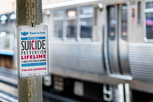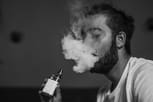The unexpected passing of Soundgarden frontman, Chris Cornell, shocked the world. Cornell left behind three children, a wife, and a world of adoring fans. While the autopsy has ruled his death as a suicide, benzodiazepines are suspected to be the underlying cause. It's a tragic story that, unfortunately, isn't unique.
The Benzo Epidemic
In April 2017, the FDA released a report demonstrating a trend with benzodiazepines (benzos) such as Xanax, Valium, and Ativan. Among 82,679 Xanax users surveyed, 579 committed suicide while under its influence. Lorazepam, which is the active ingredient in Ativan, is prescribed for symptoms of insomnia, anxiety, depression, pain, drug withdrawal, and seizures. Alarmingly, side effects of these drugs include dizziness, insomnia, anxiety, desperation, and depression. The drug induces the body into a natural state of relaxation by means of hypnotherapy. Under the influence of benzodiazepines, receptors of the brain are blocked and cannot receive chemicals that trigger anxiety, seizures, or other symptoms for which the drug is prescribed. Benzodiazepines come with severe limitations. The potency of lorazepam makes benzodiazepines highly addictive especially for a recovering addict. They are not to be used long-term (anywhere from 1 week to 1 month) and cannot be mixed with other drugs or alcohol.
A Disturbing Find
The National Center for Biotechnology Information conducted a case study observing radical changes in a patient's behavior under the influence of lorazepam. The patient was prescribed benzodiazepines and antidepressants in response to a reportedly "low mood" which had been persistent for over a year. The patient had first experienced stress and anxiety after his wife was diagnosed with cancer. He was still experiencing these feelings after her cancer treatment had been successful.
Three weeks after beginning low dosages for lorazepam the patient was admitted to the emergency room with a panic episode. Doctors credited the episode to the prescription and discontinued the dosage. However, doctors switched the prescription to another benzodiazepine in combination with therapy. What was credited as a case of extreme paranoia, neuroticism, and anxiety may have in fact been a sign of addiction. The patient took a dosage well over the suggested minimal dose without doctor’s orders and on top of the other prescription. The study reveals an increased loss of control and anxiety over a period of time. Eventually, the patient inflicted himself with stab wounds to his abdomen and neck on separate occasions. The patient does not recall any thoughts of suicide or self-harm prior to the drug. The patient's CT brain scans were clear of cognitive malfunction before using lorazepam and he was described as a "robust" character. Prior to using benzodiazepine the patient was diagnosed only of a "low mood." After use he had become unstable, highly anxious, and self-harming. What appeared to be an initial case of stress triggered by life events became an extremely dangerous addiction.
Symptoms of Addiction & Withdrawal
To avoid addiction to benzodiazepines, symptoms of anxiety, depression, and insomnia should be closely monitored and treated alternatively. Nutrition, exercise, stress reduction, and counseling should be part of a treatment plan prior to being prescribed any psychiatric drugs.
Signs of addiction:
- Drowsiness
- Heightened anxiety
- Feelings of depression
Signs of withdrawal:
Call for emergency help immediately if you or a loved one has the following symptoms:
- Blurriness
- Excessive drowsiness
- Coma
- Stumbling
- Impaired cognitive function
- Poor judgment
- Impulsiveness
Are you or a loved one at risk of benzodiazepine addiction? It's never too late to ask for help. Please visit our directory of treatment centers or call 800-772-8219 to speak to a treatment specialist.








